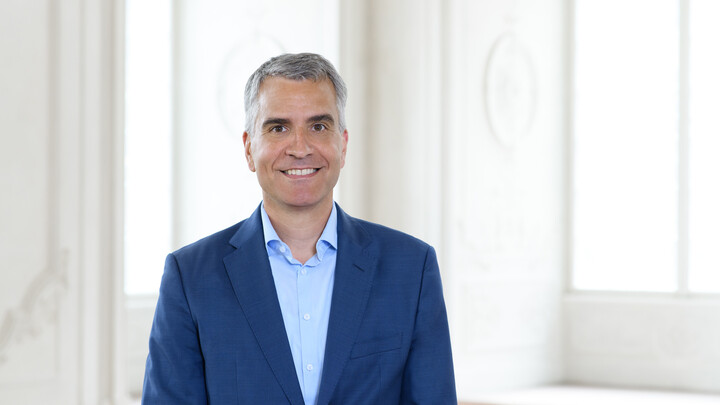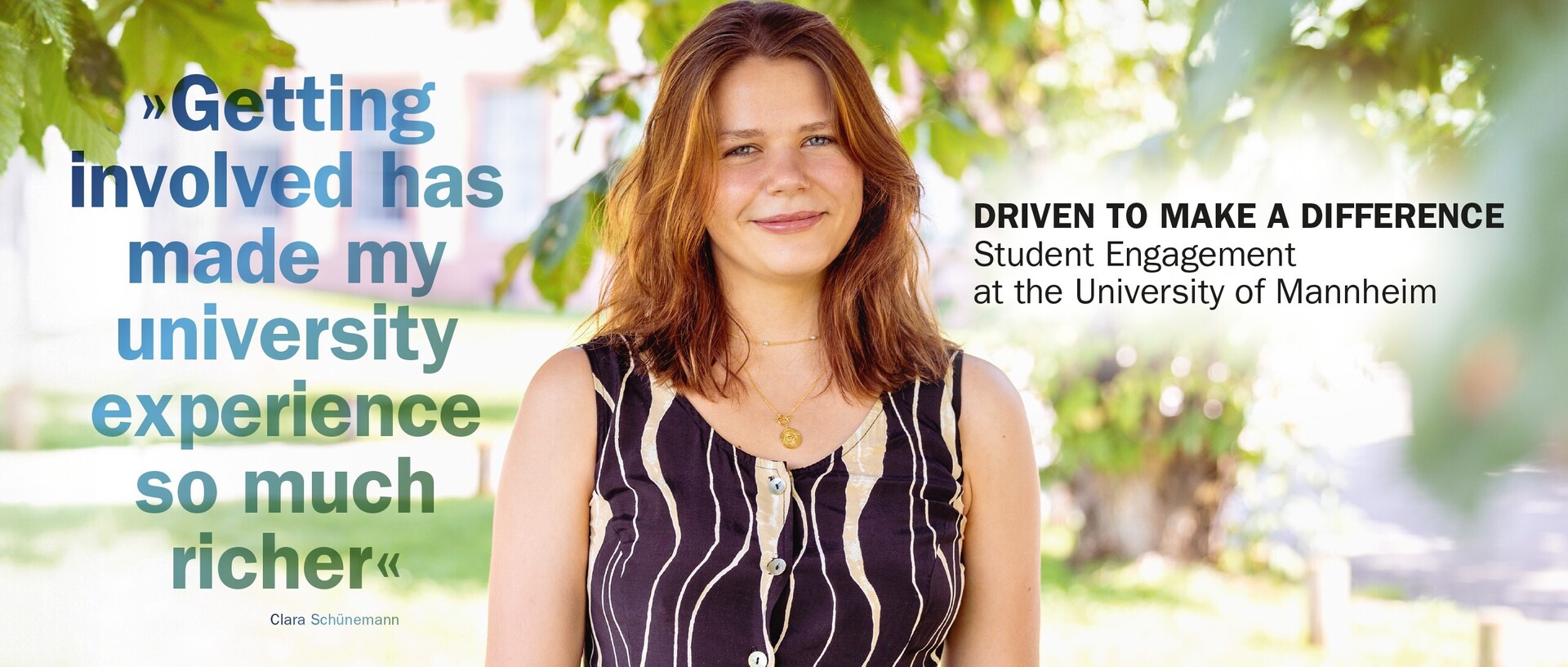The Roadmap for the Next Five Years
The University of Mannheim has adopted its strategy until 2028: The new Strategic Plan (Struktur- und Entwicklungsplan, StEP) defines the university’s strategic goals and the measures to achieve these goals. The strategy process for the years 2024 to 2028 was led by Vice President Prof. Dr. Thomas Fetzer, who is set to become President on October 1. In this interview, he talks about how the new plan came about, its key goals, and the future challenges for the university.

FORUM: The current StEP contains some new features. How did the strategy paper come about?
Thomas Fetzer: The legal requirements were different this time compared to previous years. Previously, the StEP mostly consisted of long sections on the individual schools, whereas now the focus is on an overall university strategy. We took these legal changes as an opportunity to start a university-wide strategy process. This involved workshops with representatives of all schools, central institutions and administrative units, as well as conversations with students and the Senate. Together, we agreed on a set of very specific goals and measures. All of the university’s stakeholders were part of this process. This creates more acceptance for the plan, making everyone work together to pursue these shared goals.
FORUM: What was your own experience in the strategy process?
Fetzer: It was an extremely positive experience. Of course, designing a strategy requires you to set priorities – and not everyone has the same idea of what’s good and important. But the StEP was unanimously approved by the Senate and the University Supervisory Board. And that, I believe, is also because we tried to involve everyone in every step of the process and because we explained our priorities.
FORUM: The StEP is very comprehensive. If you had to pick out three goals, what would they be?
Fetzer: To remain attractive for the best researchers, teachers, students and staff, one key goal is that we continue to excel in individual research and, even more importantly, in collaborative research, for instance in collaborative research centers or Leibniz ScienceCampi.
The second key goal is to make progress in terms of gender equality. Currently, the proportion of women among W3 professors at Mannheim is around 22 percent – even though the gender ratio among students is almost equal across all schools. This means we’re not using our potential.
And third, we need ongoing development in the area of digitalization, both in the administration and in research and teaching.
FORUM: What measures does the university propose to reach these goals?
Fetzer: Collaborative research projects require more lead time. One key factor for their success is that participants have already collaborated successfully before. We therefore need to improve the conditions for collaboration, including collaboration across disciplinary boundaries. That’s why we will set up a Center for Advanced Studies in which researchers from all disciplines can work on research projects – ideally, together and in an interdisciplinary fashion. To make this happen, we will give them the time they need to do so.
In terms of gender equality, we expect major progress from our involvement in the Female Professors Program 2030, funded by the federal and state governments to promote the appointment of women to W3 professorships. What matters most, however, is that careers in academia become more attractive for young female scholars. This involves issues such as reconciling work and family responsibilities and more plannable career paths. Tenure-track junior professorship positions are certainly one crucial instrument in this context.
Digitalization is an issue that must be addressed with the entire university in mind. That’s why the new President’s Office will feature a Vice President for Digitalization working closely with the Executive Vice President, who is responsible for the digitalization of the university administration. In terms of teaching, we plan to make more extensive use of digital technologies to make teaching and learning better and more inclusive. To do so, we need new and different classrooms suitable for digital teaching, among other things. And we must support our teachers and students in using these technologies and sometimes encourage them to overcome their reservations. When it comes to research, research data management is essential, especially at a university with a strong empirical focus such as Mannheim.
FORUM: What are the factors that determine how quickly and successfully the measures are implemented?
Fetzer: We are currently in negotiations with the state government regarding the new university funding contract, which will apply from 2026 onwards. You don’t have to be a clairvoyant to know that the general financial conditions will not improve as we move forward. This means we will depend even more than before on generating external funding.
FORUM: You will take office as President on October 1. This means you will be primarily responsible for implementing the StEP. Where does the university want to go with this strategy?
Fetzer: We want to continue to be the leading university in our core subjects. That is, number one in Germany and among the top group in Europe. We also want to strengthen our reputation as a place for world-class empirical research across all disciplines. One of the strengths of the University of Mannheim is that our profound empirical expertise enables us to provide research-based recommendations for addressing current social, economic and social challenges – recommendations that are relevant for policymakers as well.
FORUM: What other priorities do you have in mind for your term of office?
Fetzer: A lot of them are already laid out in the StEP. However, I think that we must also get together and revisit the university’s mission in light of the fundamental political, social, economic, technical and ecological shifts that are taking place. We need to ask ourselves: What are the values we stand for as a university and as individual university members in the future, and what can we do to strengthen those values? Let me just give three examples: What do academic freedom and sustainability actually mean to us? And how do we deal with artificial intelligence? Again, addressing these issues requires a participatory process, which doesn’t unfold overnight. But I would like to be the one to initiate it.
FORUM: What are the university’s greatest challenges in the years ahead?
Fetzer: Well, funding is always a challenge. But apart from that, we are seeing the authority of science increasingly challenged in society, a trend that I find alarming. It’s getting more and more difficult to convince people outside the universities of the value of science. To be frank, it’s also up to us to improve our communication. And to listen to what’s on people’s minds. After all, recent years have shown how unexpected political, economic and technological developments and crises on a global scale may impact the university. But I am sure that we are well-prepared for future challenges because we have excellent researchers, teachers, students and staff.
Interview: Katja Bauer and Dr. Maartje Koschorreck / August 2024
Further information can be found on our website Strategy of the University of Mannheim.
